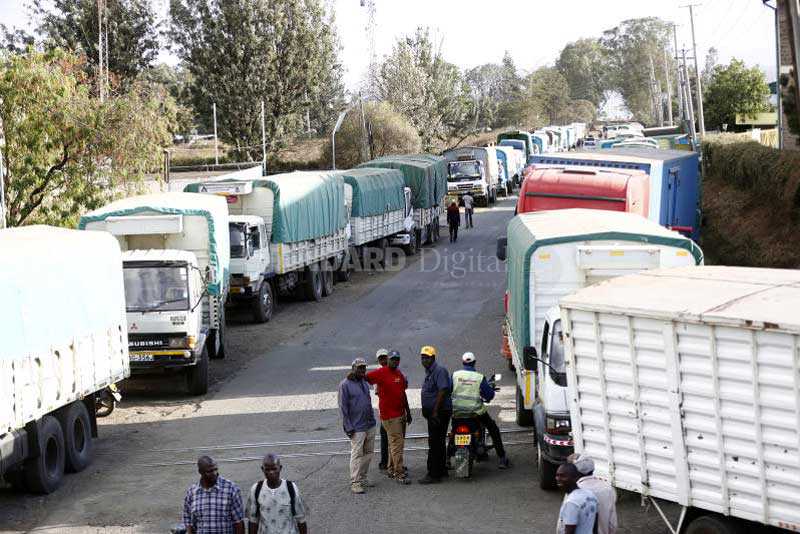×
The Standard e-Paper
Fearless, Trusted News
 Lorries queue to offload their Maize at National Cereals and produce Board (NCPB) on February 27, 2018. [Photo by Kipsang Joseph/Standard]
Lorries queue to offload their Maize at National Cereals and produce Board (NCPB) on February 27, 2018. [Photo by Kipsang Joseph/Standard]Farmers in North Rift fear they may not plant on time after the Government failed to pay them for maize delivered to the National Cereals and Produce Board (NCPB).
They were hoping to use the money to buy inputs ahead of the next planting season which starts this month.